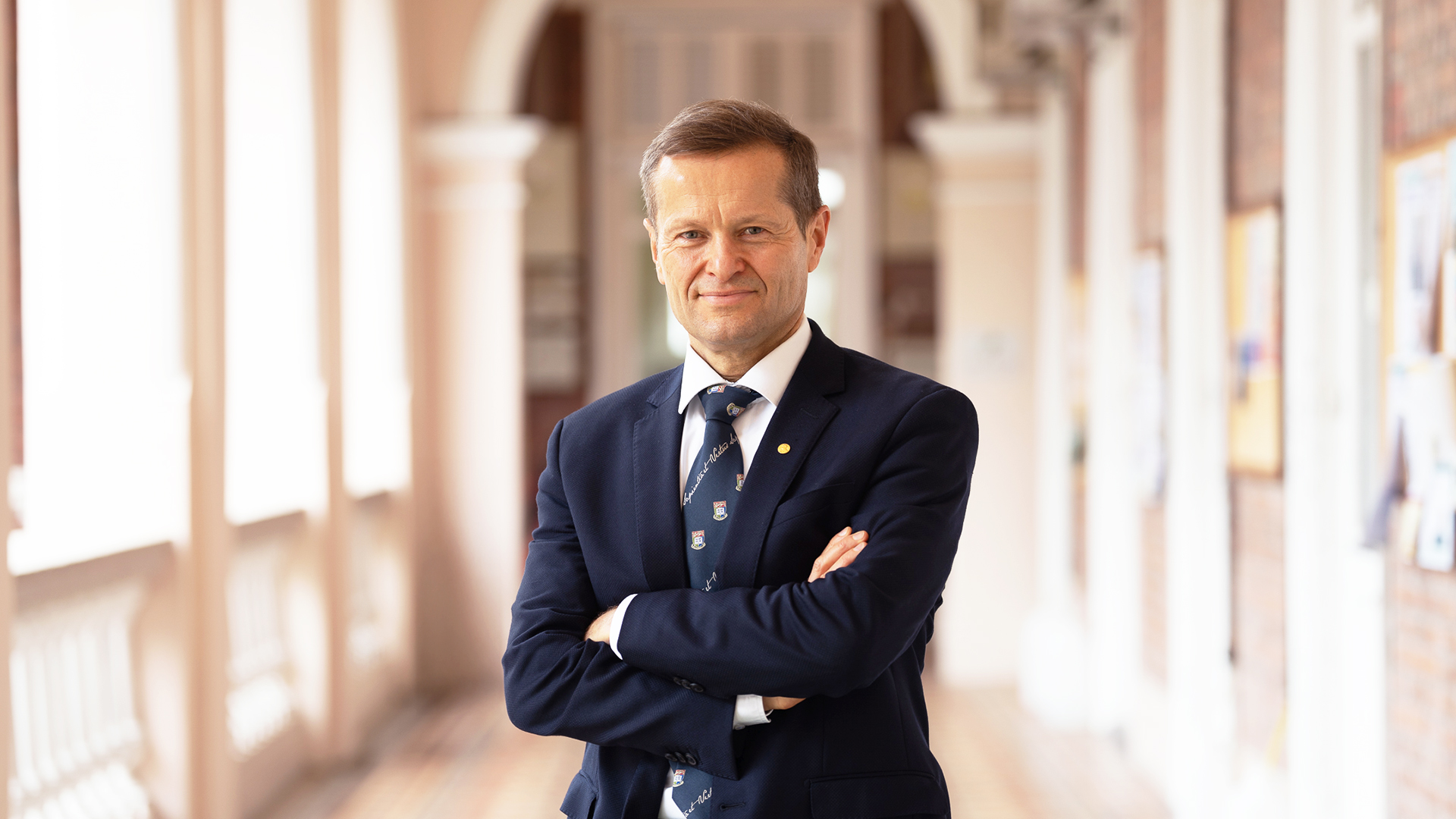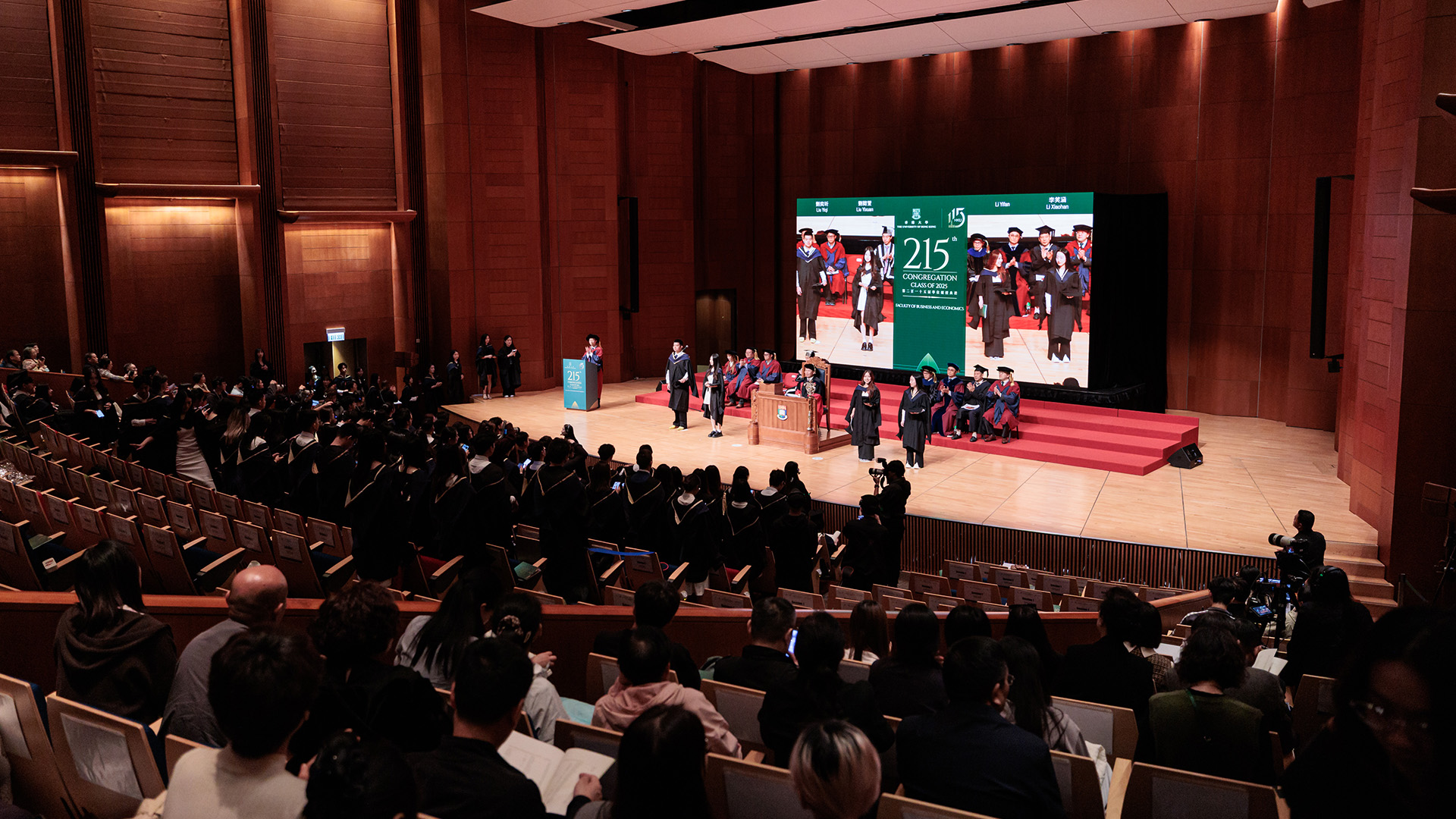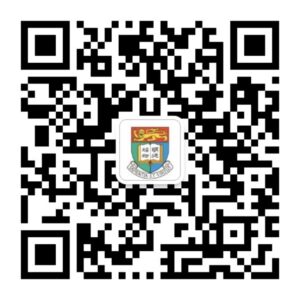Professor Jay Siegel is HKU’s new Vice-President and Pro-Vice-Chancellor (Teaching and Learning). A distinguished scholar in molecular design and synthesis, he has worked at leading universities around the world. Learn more about his vision to bring out the best in students at HKU in a world saturated with technology.
Q: In a nutshell, what is university for?
A: Personal transformation and knowledge creation, keeping in mind that knowing and believing are closely related. Knowledge might stem from empirical aspects of our lives, while belief leans more philosophical or spiritual, but at university, the goal is to transform the individual into an independent thinker who can develop their own belief structure.
Q: What should we expect from a university?
A: For a university like HKU – with its consistently high global rankings, long tradition, great prestige – the bar for achieving student transformation is already very high. We should be admitting the very best students, not just from Hong Kong, but around the world, so our graduates should be even more extraordinary when they leave – they should be world-changers, creators of the future, and people who can articulate and defend their own belief structure.
Q: How can a university create graduates of this calibre?
A: I would like to see HKU becoming a ‘scholars’ garden’ – a community of scholars, where you can find a strong sense of interpersonal support and networking. Academic curricula will always be important, but the education at a great university also comes from interpersonal interactions outside of the curriculum or outside of the auditorium-based classroom.
Q: What was your own path to academia?
A: From a young age, I’d always been interested in the material world – colour, plastics, and various things – which drew me into science and chemistry. I worked my way through high school and college with the aim of becoming a pharmacist. While I mapped out my career, many steps along the way revealed unexpected opportunities, pushing me in new directions. My flexibility and adaptability towards such changes allowed me to benefit from them. So I encourage students, or anyone for that matter, to be open to new ideas and changes in direction; when opportunities arise, be ready.
Q: Is there a key theme you want to develop in your role?
A: A sense of community is vital. As simple as that sounds, if you look at great universities around the world, the programmes that work well are those that inspire a sense of community. I understand through my experiences with the best universities in Europe, America and China how important this is ultimately. The whole is greater than the sum of its parts.
Q: What do you think of the global AI ‘tsunami’?
A: AI is not as new as many people may think, and I say this as someone with a computational background who uses it in his own work. It’s astonishing how well and how quickly it can work, but fundamentally, AI provides us with interpretations of pattern recognition. It’s a tool we should choose to use, but if we believe that human interaction matters, that community is important, then we can choose to use these tools to enhance that type of interaction.
Q: How do you see AI fitting into education, in practical and ethical terms?
A: There are certainly many areas where AI may help students with specific learning tasks, like improving language competency, for example. The ethical issues that come up are usually not about the use of AI itself, but with how the student represents the contributions or influence on their work by AI. Once you acknowledge that your work is enhanced by or leverages AI, then it can be critiqued and discussed fairly and the assessor can transparently see the origins of the work.
Historically, people who make the best use of a technology are those who understand the previous generation of the technology. This is why we ask students to demonstrate ability without the aid of technology – to develop maturity and inform how they use new tools ethically and effectively.
Q: So AI isn’t an existential threat to universities?
A: We should be more nuanced about how we think about AI and its impact. It could certainly replace some product output in certain fields, but producing work products was never the purpose of a university. The true intent of classical universities is human development and personal growth. That cannot, and should not, be replaced by AI.
Q: How important do you think interdisciplinary approaches are in university education?
A: I contributed to the development of the new interdisciplinary schools – the School of Innovation and the School of Biomedical Engineering. General knowledge and interdisciplinarity are certainly important for navigating life, but deep disciplinary expertise is often what makes you a valuable member of an interdisciplinary process. Our students should have broad skills, but they should also strive to become recognised experts in their fields – whether in graduate school, companies, or government. Only experts with the ability to think broadly and adaptably can contribute meaningfully to solving broader social problems.
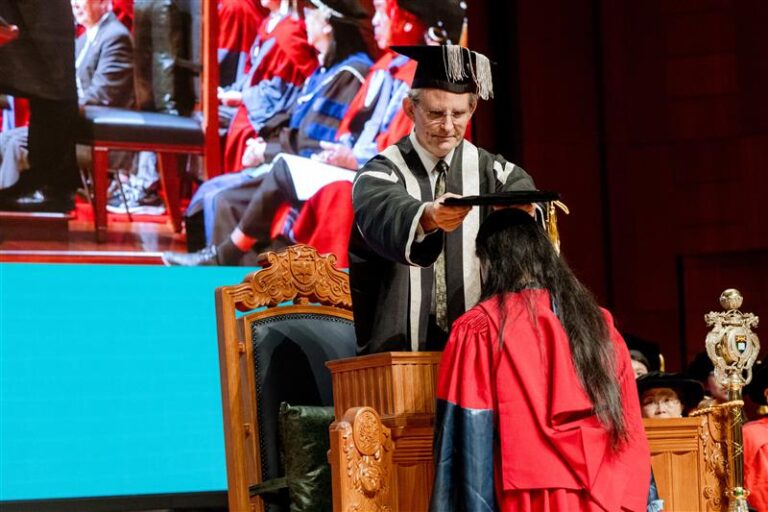
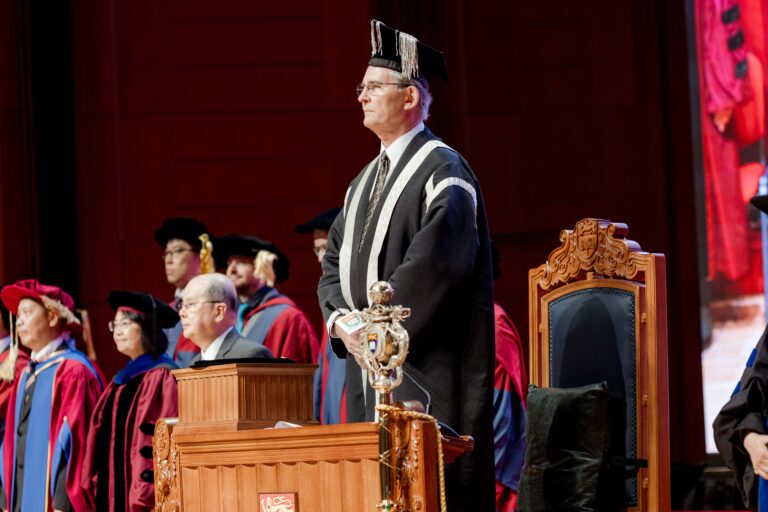
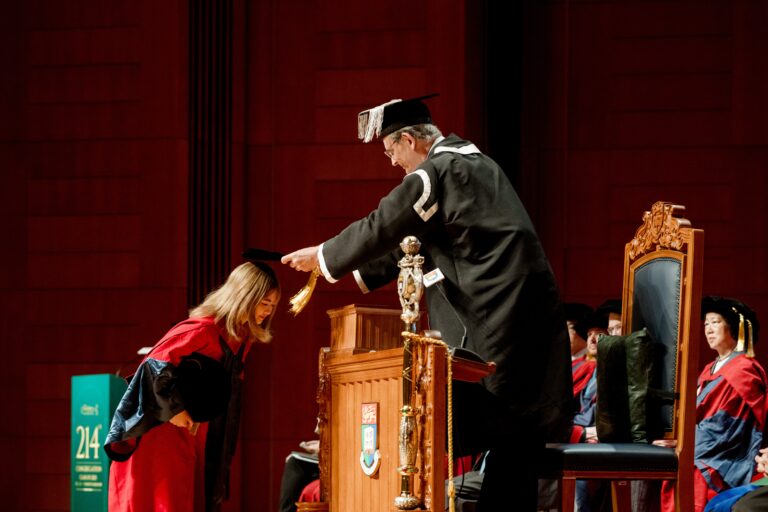
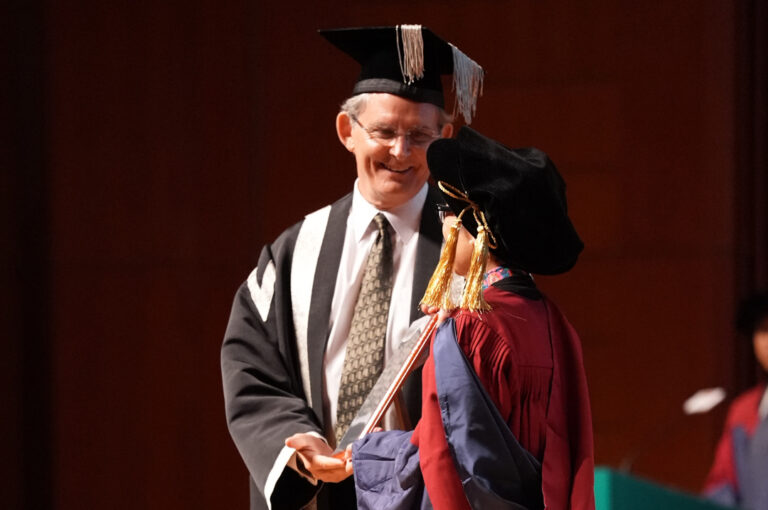
Professor Siegel was the Presiding Officer at the 214th Congregation Ceremony of the Faculty of Social Sciences.

